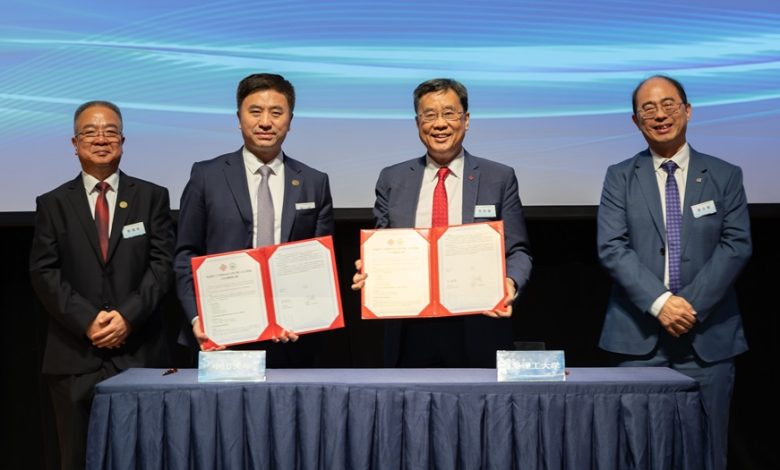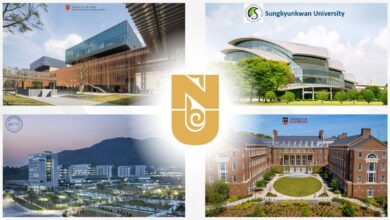PolyU and Sun Yat-sen University Join Forces to Develop Interdisciplinary Medicine-Engineering Talent for Hong Kong’s Healthcare and Biomedical Industry

The Hong Kong Polytechnic University (PolyU) and Sun Yat-sen University (SYSU) have formalized a partnership through a Memorandum of Understanding (MOU) aimed at advancing education and research in interdisciplinary medicine and engineering. This collaboration intends to develop medical professionals and innovate medical technology programs within Hong Kong. Key components of this partnership include the establishment of joint laboratories and the facilitation of academic exchanges to enhance research outcomes.
MOU Signing Ceremony
The MOU was signed by Professor Wing-tak Wong, Deputy President and Provost of PolyU, and Professor Yang Qinghua, Executive Vice President of SYSU. Additionally, the agreement received support from Professor David Shum, Dean of the Faculty of Health and Social Sciences at PolyU, and Professor Kuang Ming, Dean of the Zhongshan School of Medicine at SYSU.
Educational and Research Opportunities
Both institutions plan to investigate various educational and research opportunities, leveraging PolyU’s strengths in specialized fields alongside SYSU’s clinical medical expertise. A dual bachelor’s degree program in medicine spanning eight years is planned for implementation, as well as the exploration of a dual professional doctorate in medicine and engineering. This initiative aims to equip graduates with proficiency in both disciplines and facilitate recognition of cross-border medical practice qualifications in Hong Kong and Mainland China.
Strategic Importance of Collaboration
Professor Wong indicated that this collaboration is essential to PolyU’s efforts in establishing a medical school, mentioning the university’s ranking among the top 100 globally and its areas of strength in health sciences and engineering. The integration of medicine and engineering is seen as a strategic approach to enhance research and training in clinical medicine, with a focus on producing graduates poised to meet the healthcare requirements of Hong Kong and the Greater Bay Area (GBA).
Longstanding Partnership
Professor Kuang acknowledged the longstanding partnership between the Zhongshan School of Medicine and PolyU, highlighting the university’s role in preparing healthcare professionals familiar with the public healthcare system. The increasing demand for medical talent proficient in both fields, particularly amid advancements in artificial intelligence and robotics, was emphasized.
Growing Demand for Medical Services
The GBA currently has a population of approximately 86 million, with a notable increase in the number of permanent residents, indicating a growing need for high-quality medical services in the region. This situation underscores the importance of cultivating a workforce with competencies in both medical and engineering disciplines. The Hong Kong SAR Government aims to enhance the city’s medical capabilities to advance the biomedicine and medical device industries, which will further drive the demand for trained professionals in clinical medical technology.
Future Plans for Medical Education
PolyU is recognized for its robust health science education and research, supported by modern facilities. The university has proposed the creation of a satellite campus in the Northern Metropolis to accommodate a new medical school, which is expected to promote the quality and sustainability of future medical services.
Impact on Healthcare Framework
To date, PolyU has successfully trained over 50,000 professionals across various healthcare sectors, contributing to the ongoing development of the region’s healthcare framework. Collaboration with local hospitals and medical institutions has further reinforced this commitment. As the partnership between PolyU and SYSU evolves, it is expected to enhance cooperation in clinical medicine across borders, fostering the integration of medical and engineering disciplines while developing interdisciplinary talent for Hong Kong and the GBA.
(Source: The Hong Kong Polytechnic University)




